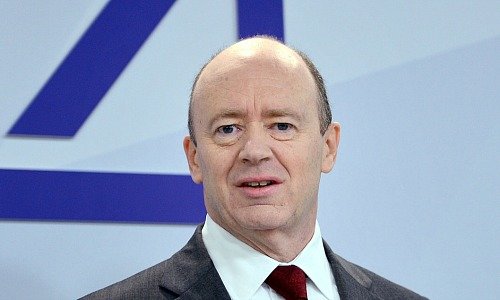Deutsche Rules Out Asset Management Disposal
Deutsche Bank’s asset management competitors may have celebrated too soon: the German bank’s boss has roundly denied speculation that the overall unit will fall victim to a five-year restructuring plan.
Investors in the German banking champion face a bleak outlook: no shareholder payouts as part of a five-year restructuring strategy to counter massive losses and refill depleted capital.
«Deutsche Asset Management is and will remain an essential part of our business model,» John Cryan said in the letter, which was published on the bank's website.
With Brexit dealing another body blow to Deutsche, observers have openly speculated that the German bank will have to step up its program of disposals, which includes Postbank and an Argentinian subsidiary.
Sticking with Asset Management
Deutsche Bank boss Cryan sent an unmistakable message on Monday: he is sticking with asset management.
Asking staff to not allow distractions from alleged merger and sale plans, he said: «There is one rumour in particular that I would like to dispel by making it unambiguously clear that Deutsche Asset Management is and will remain an essential part of our business model.»
In Shadows of Private Bank
The Swiss asset management unit has long operated in the shadow of the private bank, but the two are roughly equivalent in size: asset management has nearly 40 billion Swiss francs under management to the private bank’s almost 43 billion.
In overall fund volume, Deutsche asset management unit isn't a top-ten player in Switzerland, according to fund industry statistics measuring fund volume.
However, Deutsche is a powerful competitor with institutional investors like insurers and pension funds, where its fixed income and real estate funds are popular.
Further Cuts Needed
The affirmation for asset management is noteworthy because Deutsche, barely profitable in the second quarter, is looking at ways to cut spending further, the bank said in July.
Cryan, former UBS finance chief, has had to deny reports that he spoke with Martin Zielke his CEO counterpart at Commerzbank, about a tie-up.
Deutsche doesn’t split out how many of its nearly 700 staff in Switzerland work in asset management, but the number is dwarfed by the staff- and resource-intensive private banking arm and its investment banking activities.
Asset Management?
Cryan’s backing hits at the heart of the debate over the role of asset management with major banks, against the backdrop of specialized players like BlackRock and Pimco.
UBS and Credit Suisse have addressed this question differently: at UBS, it is an essential though far smaller component alongside a flagship private bank and an investment bank.
In 2012, Credit Suisse merged its wider asset management unit into its private bank in order to focus on fewer, more specialized areas.



























